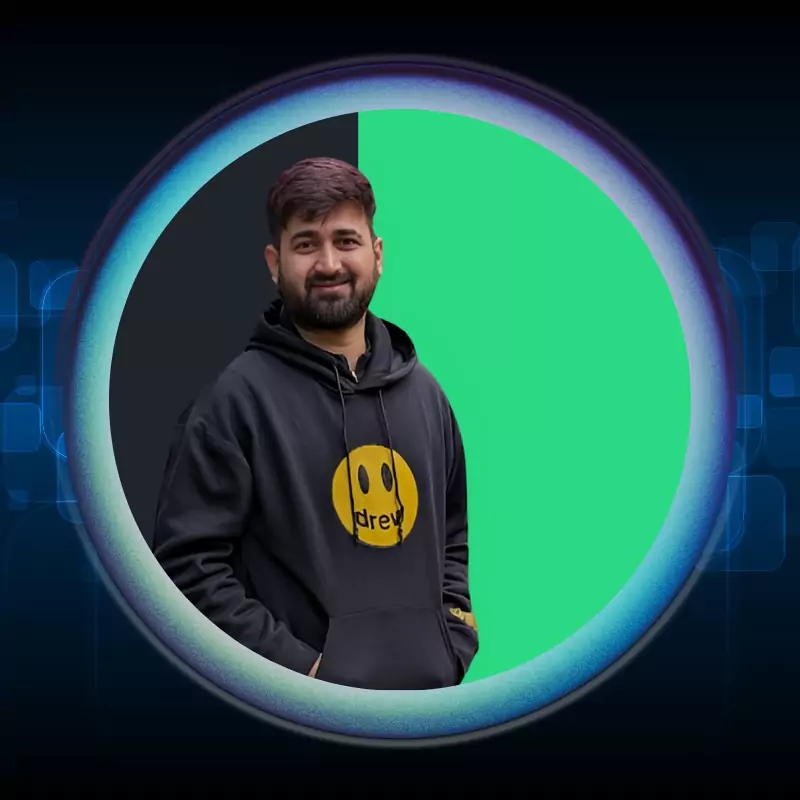Some shows make you check your phone every five minutes, but this one glues you to the screen faster than superglue on fingers. Sare Jahan Se Accha starts with a simple premise that becomes incredibly complex as layers peel away like an onion. Set in the 1970s during the height of India-Pakistan tensions, this Netflix series brings espionage drama to life with remarkable authenticity.
Pratik Gandhi steps into the shoes of Vishnu Shankar, a RAW agent carrying the weight of past failures on his shoulders. His mission takes him deep into enemy territory where every conversation could be his last and every friendship might be a lie. The actor brings quiet intensity to a role that demands both physical courage and emotional vulnerability.
Sunny Hinduja delivers what might be his career-best performance as Murtaza Malik, the Pakistani ISI chief who serves as Vishnu’s worthy adversary. The chemistry between these two actors creates electric tension that runs through every scene they share. Their cat-and-mouse game becomes the backbone of the entire series, with neither man giving an inch.
The supporting cast elevates the material beyond typical spy thriller territory with nuanced performances across the board. Tillotama Shome brings depth to her role as Vishnu’s wife Mohini, though the character deserves more screen time than she gets.
Rajat Kapoor commands respect as R.N. Kao, the head of RAW, while Kritika Kamra makes a strong impression as journalist Fatima Khan despite limited appearances. Suhail Nayyar and Anup Soni round out the ensemble with solid supporting work that keeps the story grounded.
Director Sumit Purohit creates a world that feels lived-in rather than constructed, with period details that transport viewers back to the 1970s. The cinematography captures both the claustrophobia of secret meetings and the sprawling landscapes where nations play deadly games. Every frame serves the story without drawing attention to itself, which marks the sign of skilful filmmaking.

The writing team, led by creator Gaurav Shukla, deserves credit for avoiding the jingoistic pitfalls that often trap spy thrillers set during wartime. Pakistani characters receive the same depth and humanity as their Indian counterparts, creating moral complexity that enriches the viewing experience. This balanced approach makes the conflict feel real rather than cartoonish.
Production values shine through authentic costumes, sets, and props that recreate the 1970s without feeling like a museum exhibit. The background score supports the tension without overwhelming dramatic moments, while editing keeps the pace tight across all six episodes. Technical aspects work together seamlessly to create an immersive experience that never breaks the spell.
The series tackles themes of loyalty, sacrifice, and patriotism without resorting to chest-thumping nationalism that often mars similar projects. Both Indian and Pakistani agents believe deeply in their causes, making their conflict tragically inevitable rather than simply good versus evil. This mature approach to sensitive subject matter shows respect for audiences who want substance along with their thrills.

Netflix has been investing heavily in Indian content, and this series represents a significant step forward in production quality and storytelling ambition. The streaming platform’s global reach means stories like this can find audiences worldwide who appreciate intelligent espionage drama. International viewers will discover that Indian spy thrillers can compete with the best content from any country.
Audience reception has been largely positive, with viewers praising the series for its realistic portrayal of intelligence work and strong performances. Critics have noted some pacing issues in the final episodes, but most agree that the first half builds tension effectively. Social media buzz suggests that word-of-mouth recommendations are driving viewership numbers upward.
The show’s six-episode structure works well for this type of story, avoiding the padding that often weakens longer series. Each episode advances the plot meaningfully while developing character relationships that feel genuine rather than forced. This tight storytelling approach keeps viewers engaged without testing their patience.

Compared to other Indian spy thrillers like Mission Majnu or Raazi, this series offers a more grounded approach that favors character development over spectacular action sequences. The focus on psychological warfare and moral dilemmas sets it apart from films that rely heavily on explosions and chase scenes. Smart viewers will appreciate the show’s trust in their intelligence to follow complex plotting.
The series stumbles slightly in its final act, where some plot threads feel rushed and certain character arcs don’t receive proper resolution. Romance subplots particularly suffer from underdevelopment, feeling more like obligations than organic story elements. These flaws prevent the show from achieving true greatness, though they don’t derail the overall experience.
Historical accuracy takes some creative liberties, as the creators acknowledge that this is inspired by true events rather than a documentary. The fictional elements serve the dramatic needs of the story while maintaining the spirit of the 1970s nuclear race era being portrayed. Viewers should approach this as entertainment first and a history lesson second.

Performance-wise, Gandhi proves once again that he can carry a series on his shoulders after his breakout role in Scam 1992. His portrayal of Vishnu shows remarkable range, from quiet determination to explosive anger when his mission faces threats. The actor makes viewers care about a character who operates in moral grey areas.
Sare Jahan Se Accha delivers enough quality entertainment to justify your time investment on this Independence Day weekend. The series succeeds as both a patriotic tribute to unsung heroes and a compelling character study about the price of serving one’s country. Smart writing, strong performances, and authentic period details combine to create a viewing experience that lingers long after the credits roll.













